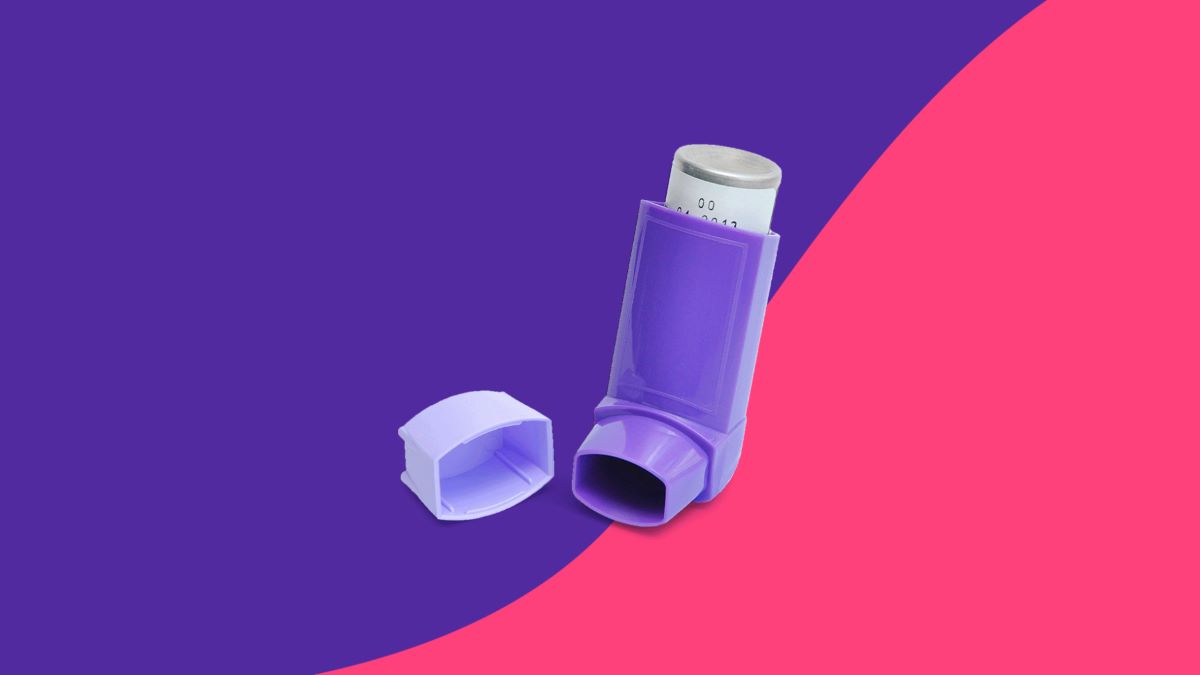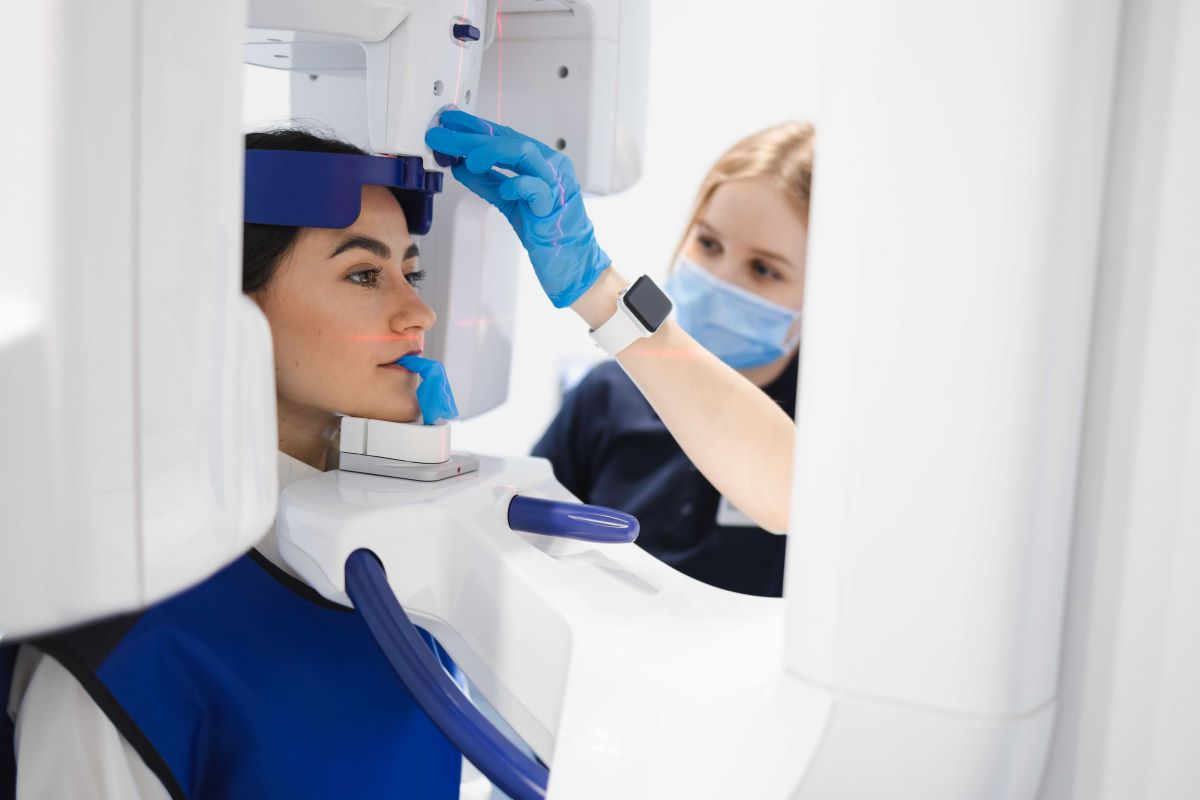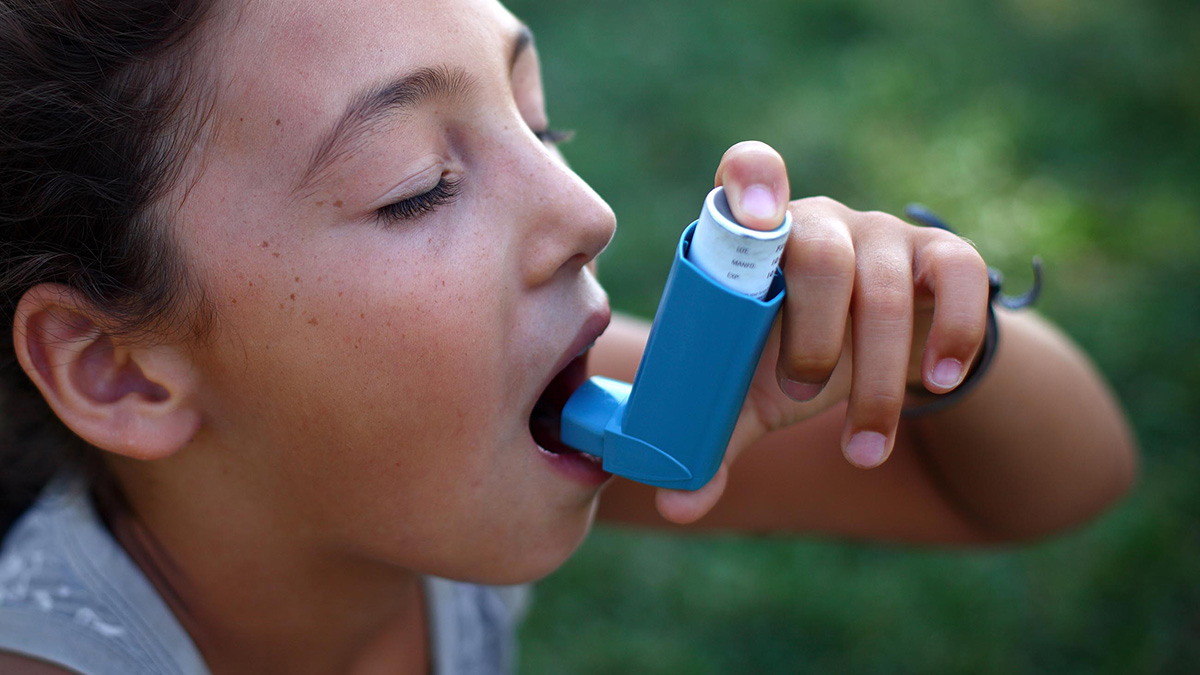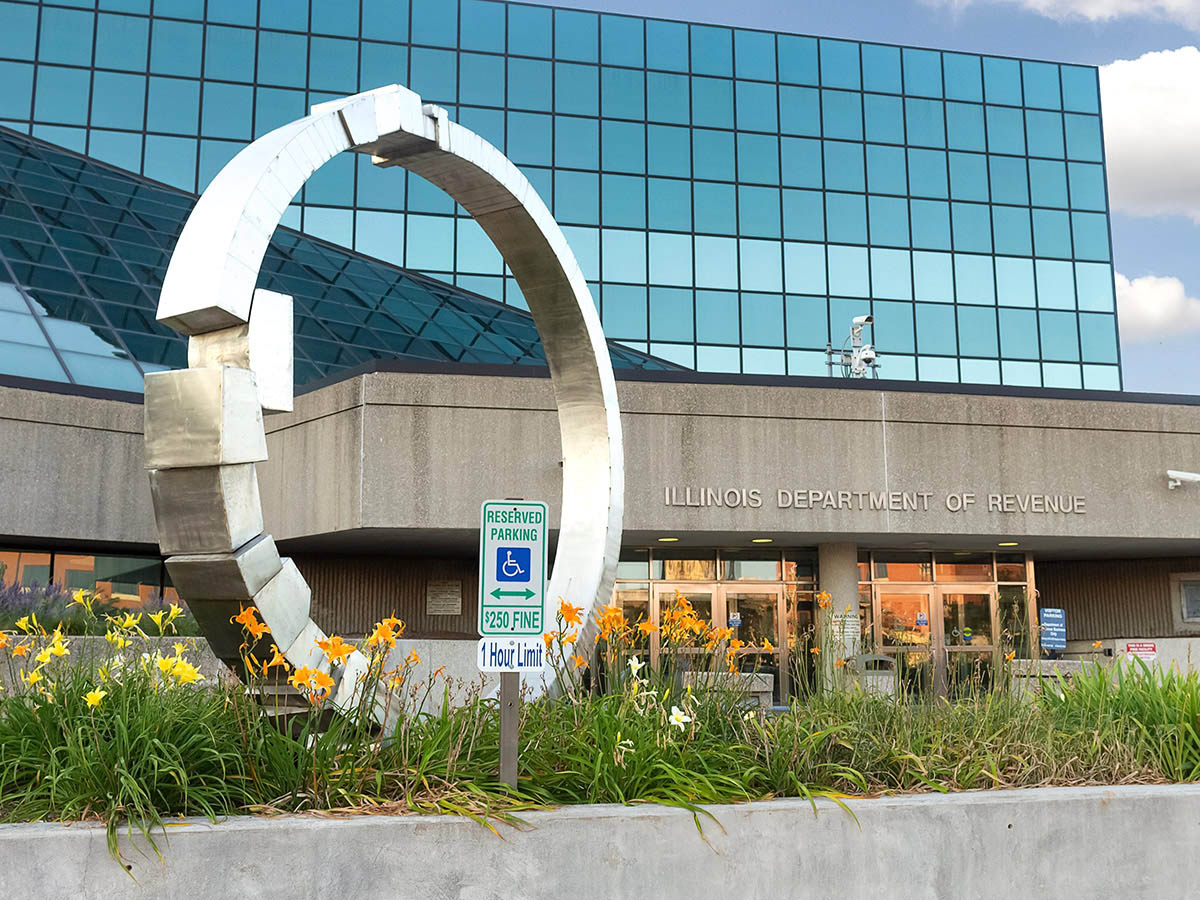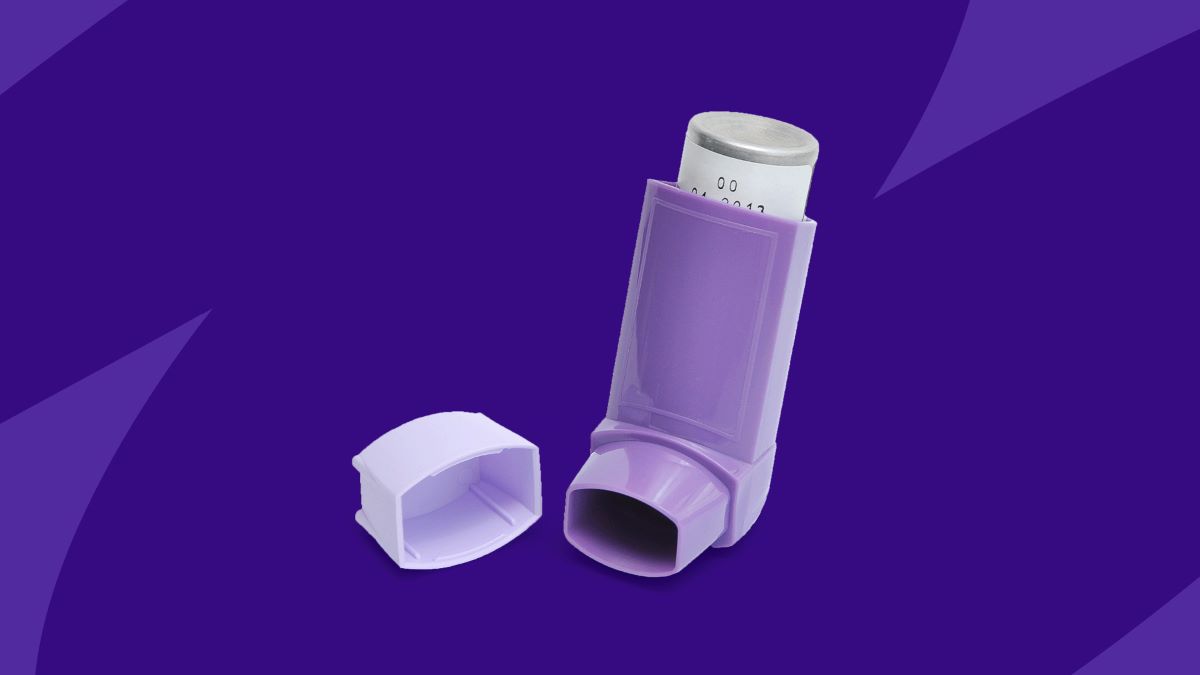

Finance
How To Get An Inhaler Without Insurance
Published: November 15, 2023
Learn how to get an inhaler without insurance and manage your finances effectively. Find affordable options and take control of your healthcare needs.
(Many of the links in this article redirect to a specific reviewed product. Your purchase of these products through affiliate links helps to generate commission for LiveWell, at no extra cost. Learn more)
Table of Contents
- Introduction
- Understanding the Importance of Inhalers
- Exploring Options for Obtaining Inhalers Without Insurance
- Seeking Assistance Programs
- Utilizing Prescription Discount Cards
- Discussing Alternatives with Healthcare Providers
- Investigating Online Pharmacies
- Exploring Local Health Clinics
- Considering Generic Inhalers
- Reaching Out to Nonprofit Organizations
- Investigating Manufacturer Assistance Programs
- Conclusion
Introduction
Living with a respiratory condition such as asthma can be challenging, especially when it comes to managing the cost of inhalers. Inhalers are crucial for individuals with respiratory issues, as they provide quick relief and help to control symptoms. However, without insurance coverage, the cost of inhalers can become a significant burden. It’s important to remember that access to healthcare is a fundamental right, and there are options available to help those without insurance still obtain the necessary medication.
In this article, we will explore various avenues that can be pursued to obtain inhalers without insurance. While it may seem daunting at first, there are programs, assistance options, and alternative approaches that can help individuals receive the medication they need without breaking the bank.
Before diving into the options, it’s essential to understand the importance of inhalers and why they play a critical role in managing respiratory conditions. Inhalers are medical devices that deliver medication directly to the airways, providing rapid relief for asthma symptoms or other respiratory issues. They contain medications such as bronchodilators, which help to open up the airways and reduce inflammation.
Without proper access to inhalers, individuals with respiratory conditions are at risk of experiencing frequent or severe symptoms that can interfere with their daily lives. This underscores the need to find affordable solutions for obtaining inhalers without insurance.
In the following sections, we will explore various options that can help individuals without insurance access inhalers without facing exorbitant costs. These options include seeking assistance programs, utilizing prescription discount cards, discussing alternatives with healthcare providers, investigating online pharmacies, exploring local health clinics, considering generic inhalers, reaching out to nonprofit organizations, and investigating manufacturer assistance programs.
By exploring these avenues, individuals without insurance can significantly reduce the financial burden associated with purchasing inhalers and ensure they have access to the necessary medication to manage their respiratory condition effectively.
Understanding the Importance of Inhalers
Inhalers are vital tools for individuals with respiratory conditions, such as asthma or chronic obstructive pulmonary disease (COPD). These medical devices deliver medication directly to the lungs, providing quick relief and helping to control symptoms. Understanding the importance of inhalers is crucial for those seeking alternatives to obtain them without insurance coverage.
Respiratory conditions, such as asthma, can cause inflammation and narrowing of the airways, making it difficult to breathe. Inhalers contain medications that help to open up the airways, alleviate symptoms, and improve lung function. There are two main types of inhalers: rescue inhalers and controller inhalers.
Rescue inhalers, also known as bronchodilators, provide immediate relief during acute symptoms, such as sudden shortness of breath or wheezing. These inhalers work by relaxing the muscles in the airways, allowing them to open up and restoring normal breathing. They are typically used as needed to provide quick relief during asthma attacks or flare-ups.
Controller inhalers, on the other hand, are used on a daily basis to prevent and manage long-term symptoms. These inhalers contain medications that reduce inflammation in the airways, decreasing the frequency and severity of symptoms. Controller inhalers help individuals with respiratory conditions maintain better control over their condition, reducing the risk of exacerbations and improving overall lung function.
It’s important to note that regular use of inhalers is crucial for individuals with respiratory conditions to effectively manage their symptoms and prevent complications. Failing to use inhalers as prescribed can lead to uncontrolled symptoms, increased risk of asthma attacks, and a decline in lung function.
For individuals without insurance coverage, the high cost of inhalers can pose a significant barrier to obtaining the necessary medication. However, it’s essential to explore alternative options to ensure access to inhalers without incurring excessive financial burdens.
In the next sections, we will discuss various strategies and resources that individuals without insurance can utilize to obtain inhalers at reduced costs or even for free. These options include assistance programs, prescription discount cards, discussions with healthcare providers for alternative medications, online pharmacies, local health clinics, generic inhalers, nonprofit organizations, and manufacturer assistance programs.
By understanding the importance of inhalers and exploring these alternative options, individuals without insurance can still manage their respiratory conditions effectively without sacrificing their financial well-being.
Exploring Options for Obtaining Inhalers Without Insurance
For individuals without insurance coverage, the cost of inhalers can be a significant barrier to obtaining the necessary medication. However, there are options available that can help alleviate the financial burden and ensure access to inhalers. In this section, we will explore several avenues that individuals without insurance can pursue to obtain inhalers at reduced costs or even for free.
- Seeking Assistance Programs: Various assistance programs, such as patient assistance programs offered by pharmaceutical companies, can provide inhalers to individuals who meet specific eligibility criteria. These programs offer free or discounted medication to those who cannot afford their prescription costs. It’s worth exploring the websites and resources of pharmaceutical companies to determine if they offer assistance programs for the specific inhaler needed.
- Utilizing Prescription Discount Cards: Prescription discount cards can help individuals without insurance reduce the cost of their inhaler prescriptions. These cards, which are available through various organizations and websites, provide discounts on medications at participating pharmacies. It’s important to compare different discount cards and pharmacies to find the best deals and ensure compatibility with the prescribed inhaler.
- Discussing Alternatives with Healthcare Providers: Open communication with healthcare providers is essential for finding cost-effective alternatives to brand-name inhalers. In some cases, there may be generic versions or alternative medications that are more affordable. Healthcare providers can assess individual needs and suggest suitable options that balance effectiveness and affordability.
- Investigating Online Pharmacies: Online pharmacies can often offer lower prices on inhalers compared to traditional brick-and-mortar pharmacies. However, it’s crucial to exercise caution when choosing an online pharmacy to ensure safety and legitimacy. Look for reputable online pharmacies that require a prescription and have positive reviews from previous customers.
- Exploring Local Health Clinics: Local health clinics, community health centers, or public health departments may provide access to discounted or free inhalers for individuals without insurance. These facilities often offer services on a sliding scale based on income, ensuring that medication costs are affordable for those in need.
- Considering Generic Inhalers: Generic versions of brand-name inhalers can be significantly cheaper while still providing the same active ingredients and effectiveness. Discussing generic options with healthcare providers and pharmacists can help individuals without insurance find more affordable alternatives to brand-name inhalers.
- Reaching Out to Nonprofit Organizations: There are nonprofit organizations that provide assistance and support for individuals without insurance in obtaining essential medications, including inhalers. These organizations may offer prescription assistance programs or financial aid to help cover the cost of medications. Research local and national nonprofit organizations that focus on respiratory health to explore potential resources.
- Investigating Manufacturer Assistance Programs: Some inhaler manufacturers provide patient assistance programs that offer free or discounted medications to eligible individuals without insurance. These programs often have specific income requirements and application processes, so it’s important to visit the manufacturer’s website or contact their customer service to gather information on available programs.
By exploring these various options, individuals without insurance can increase their chances of obtaining inhalers at reduced costs or even for free. It’s important to assess individual circumstances, research available resources, and reach out to relevant organizations to make the most informed decisions.
However, it’s crucial to remember that obtaining inhalers without insurance may require time, effort, and proactive engagement with different sources. It’s advisable to plan ahead and explore these options well in advance to ensure uninterrupted access to necessary medication.
Seeking Assistance Programs
One option for individuals without insurance seeking to obtain inhalers at reduced costs or for free is to explore assistance programs offered by pharmaceutical companies and other organizations. These programs are designed to help individuals who are unable to afford their medication expenses.
Pharmaceutical companies often have patient assistance programs that provide free or discounted inhalers to eligible individuals. These programs typically have specific income requirements and may require documentation to prove financial need. Eligibility criteria can vary among programs, so it’s important to research and contact the specific company to understand their requirements and application process.
When seeking assistance programs, visit the websites of the pharmaceutical companies that manufacture the specific brand of inhaler needed. Look for sections related to patient assistance or prescription assistance programs. These sections will provide information on eligibility criteria, application procedures, and any required supporting documents.
It’s important to carefully review the application requirements and ensure that all necessary documents are prepared and submitted accurately. Missing or incomplete information can delay or disqualify the application.
Aside from pharmaceutical company programs, there may be other assistance programs available through local healthcare organizations, nonprofit organizations, or government agencies. These programs may provide resources to help cover the cost of inhalers for individuals without insurance coverage.
Research local healthcare clinics, community health centers, or public health departments in your area. These organizations often have information or referrals to assistance programs that can help with obtaining inhalers at reduced costs or for free. You can also reach out to local nonprofit organizations that focus on healthcare access or respiratory health to inquire about any available resources.
When applying for assistance programs, it’s important to be prepared with the necessary documentation, such as proof of income, identification, and prescription information. This will help ensure a smooth application process and increase the chances of receiving the needed assistance.
While seeking assistance programs can be time-consuming and may involve multiple applications, it’s a worthwhile effort to explore these resources. These programs exist to provide support to individuals who are in financial need and cannot afford the cost of inhalers without insurance coverage.
Remember to be patient and persistent during the application process. Keep track of any communication with assistance programs and follow up if needed. It may take some time to receive a response, but the potential benefits of obtaining inhalers at reduced costs or for free make it a worthwhile endeavor.
Utilizing Prescription Discount Cards
Prescription discount cards are an effective tool for individuals without insurance coverage to reduce the cost of their inhaler prescriptions. These cards provide discounts on medications at participating pharmacies and can help make inhalers more affordable.
There are various organizations, both online and offline, that offer prescription discount cards. These cards are typically free to obtain and can be used at a wide range of pharmacies, including major chains and local independent pharmacies. Some prescription discount card programs also have their own websites or mobile apps where you can search for participating pharmacies and compare prices.
When utilizing prescription discount cards, it’s important to compare different options to find the card that offers the best discounts on the specific brand and type of inhaler needed. Additionally, check if any pharmacies near you offer additional discounts or savings programs that can be combined with the discount card.
To use a prescription discount card, simply present the card at the pharmacy when filling your inhaler prescription. The discount will be applied at the point of purchase, reducing the overall cost. Keep in mind that not all medications may be eligible for a discount, and certain restrictions may apply depending on the card program and pharmacy.
It’s important to note that prescription discount cards do not provide insurance coverage. Instead, they act as a negotiation tool to secure lower prices on medications. The savings achieved through these cards can vary, but they can often provide significant discounts, sometimes up to 80% off the retail price.
When seeking prescription discount cards, be cautious of scams or fraudulent websites. Stick to reputable organizations or programs endorsed by trusted healthcare providers or consumer advocacy groups. Research customer reviews and ratings to ensure the legitimacy and reliability of the card program.
It’s worth exploring multiple prescription discount card options and comparing their discounts to ensure you’re getting the best available deal. Some cards may even offer additional benefits, such as access to telemedicine services or discounts on other healthcare-related expenses.
Remember to present the prescription discount card each time you refill your inhaler prescription to continue benefiting from the savings. Keep the card with you or save it digitally on your phone for easy access whenever you need to use it.
Utilizing prescription discount cards can make a significant difference in the cost of inhalers for individuals without insurance coverage. It’s a simple and accessible option that can help reduce the financial burden and ensure access to necessary medication.
Discussing Alternatives with Healthcare Providers
When faced with the high cost of inhalers without insurance coverage, one option to explore is discussing alternatives with healthcare providers. Open communication with healthcare professionals can lead to finding more affordable options that still effectively manage respiratory conditions.
Healthcare providers, such as physicians or respiratory therapists, can assess individual needs and circumstances to determine the most suitable alternatives for specific inhalers. They have extensive knowledge of various medications available for respiratory conditions and can make informed recommendations.
During appointments, be upfront about the financial challenges of purchasing inhalers without insurance coverage. Discuss the specific brand and type of inhaler prescribed, and inquire if there are any generic versions available. Generic inhalers often contain the same active ingredients but are typically more affordable than brand-name options.
It’s important to keep in mind that healthcare providers prioritize patient health and well-being. They will work with you to find the most appropriate and cost-effective solution for your respiratory condition. They may suggest alternative medications or different delivery systems that are equally effective but more budget-friendly.
In some cases, healthcare providers may have samples of inhalers they can provide to patients. These samples can help bridge the gap while exploring long-term affordability options or assistance programs. Additionally, they may have information on patient assistance programs offered by pharmaceutical companies or local resources for obtaining inhalers at reduced costs or for free.
Pharmacists are also valuable resources when discussing alternatives for inhalers. They have in-depth knowledge of different medications and can suggest comparable options that may be more cost-effective. Pharmacies may also offer their own discount programs or have partnerships with prescription discount card providers to help customers obtain inhalers at reduced prices.
When engaging in discussions with healthcare providers, be prepared to provide information on your financial situation, including income level, to better assess eligibility for assistance programs. It’s essential to be honest and transparent to ensure accurate recommendations and guidance.
Remember that healthcare providers are advocates for their patients’ well-being and will strive to find the best solutions within the constraints of each individual’s financial circumstances. By discussing alternatives with healthcare providers, individuals without insurance coverage can work together with their medical team to find effective and affordable options to manage their respiratory conditions.
Investigating Online Pharmacies
For individuals without insurance coverage, investigating online pharmacies can be a viable option for obtaining inhalers at potentially lower prices compared to traditional brick-and-mortar pharmacies. Online pharmacies can offer convenience and accessibility, but it’s essential to proceed with caution and ensure safety when purchasing medications online.
When considering online pharmacies, it’s crucial to choose reputable and licensed establishments. Look for pharmacies that require a prescription for inhalers, as this indicates adherence to legal and regulatory standards. Legitimate online pharmacies will also have a physical address and contact information displayed on their website.
Research the reputation of online pharmacies by reading customer reviews and checking for certifications or verifications from industry organizations, such as Verified Internet Pharmacy Practice Sites (VIPPS). These designations indicate that the online pharmacy has met certain quality and safety standards.
Make sure the online pharmacy offers a secure ordering process to protect personal and financial information. Look for websites that have secure payment gateways and encryption to ensure the confidentiality of sensitive data.
When browsing the online pharmacy’s website, check for the availability of the specific brand and type of inhaler you need. Compare prices among different online pharmacies to find the best deal. Keep in mind that prices can vary, so it’s worth investing time in research to find the most cost-effective option.
It’s important to note that purchasing inhalers from international online pharmacies may not be legal or safe. Different countries have varying regulations on medications, and the quality and safety standards of imported inhalers may not meet those required by your country’s healthcare system.
Before placing an order, consult with your healthcare provider or pharmacist to ensure the authenticity and safety of the specific online pharmacy you are considering. They can provide valuable guidance and help verify the reliability of the pharmacy.
Once you have chosen an online pharmacy, follow their ordering process and provide the necessary prescription and shipping details. It’s advisable to order in advance to allow for shipping time and any potential delays.
Upon receiving the inhaler, thoroughly check the packaging for any signs of tampering or damage. Inspect the product to ensure it matches your prescription and that the expiration date is acceptable. If there are any concerns or discrepancies, contact the online pharmacy for assistance.
While online pharmacies can provide cost savings, it’s important to remain vigilant and prioritize safety when purchasing inhalers. By following these precautions and working with reliable online pharmacies, individuals without insurance coverage can potentially access inhalers at more affordable prices.
Exploring Local Health Clinics
Individuals without insurance coverage can explore local health clinics as an option to obtain inhalers at reduced prices or even for free. Local health clinics often provide affordable healthcare services, including access to medications, for individuals in need.
Local health clinics can include community health centers, public health departments, or nonprofit organizations that offer healthcare services to underserved populations. These clinics may have programs or resources dedicated to assisting individuals without insurance in obtaining necessary medications, such as inhalers.
Research local health clinics in your area to find out if they offer medical assistance programs or prescription assistance programs. These programs are often designed to provide discounted or free medication to individuals who meet specific income or eligibility criteria.
Most local health clinics operate on a sliding scale fee system, which means that the cost of services and medications is based on your income level. This ensures that individuals with lower incomes receive the healthcare and medications they need at an affordable cost. The exact fee structure may vary from clinic to clinic, so it’s best to inquire about the specific policies and requirements.
When visiting a local health clinic, bring any necessary documentation to support your eligibility for reduced-cost or free services. This may include proof of income, identification, and prescription information. Be prepared to discuss your financial situation and demonstrate the need for assistance in obtaining inhalers.
Working with the healthcare professionals at local health clinics can provide valuable guidance and support throughout the process. They can assess your respiratory condition, review your prescription needs, and provide recommendations for inhalers that are both effective and affordable.
In addition to medication assistance programs, local health clinics may also offer opportunities for health education and management of respiratory conditions. They can provide information on proper inhaler use, trigger avoidance, and lifestyle changes that can improve respiratory health.
Keep in mind that local health clinics may have limited resources, and it’s advisable to inquire about their medication availability and any potential waiting lists for assistance programs. It may be beneficial to contact the clinic in advance to understand their specific procedures and requirements.
Exploring local health clinics as an option for obtaining inhalers without insurance coverage can not only address the financial aspect but also provide ongoing support and holistic healthcare for individuals with respiratory conditions.
Remember to regularly communicate with the healthcare providers at the clinic, update them on any changes in your financial situation or need for medication, and follow their guidance for managing your respiratory condition effectively.
Considering Generic Inhalers
When seeking affordable alternatives to brand-name inhalers without insurance coverage, considering generic inhalers can be a cost-effective option. Generic inhalers contain the same active ingredients as their brand-name counterparts but are typically available at a lower price.
Generic inhalers are approved by regulatory bodies and must meet the same quality and safety standards as brand-name medications. They undergo rigorous testing to ensure they are bioequivalent to the original product, meaning they have the same effectiveness and reliability.
Healthcare providers can play a crucial role in determining if there are generic versions available for the prescribed brand-name inhaler. During consultations, discuss your financial situation and inquire about the possibility of switching to a generic inhaler without compromising treatment efficacy.
Generic inhalers can offer significant cost savings since they do not have the expenses associated with brand recognition, marketing, or patent protection. This cost difference can make them a more affordable option for individuals without insurance coverage.
It’s important to note that slight differences in the formulation or delivery system may exist between brand-name and generic inhalers, although these differences should not affect the overall effectiveness. Healthcare providers can provide guidance on potential differences and help address any concerns.
Pharmacists can also offer insights into generic inhalers. They have a wealth of knowledge on the available options and can provide information on the cost, availability, and efficacy of generic inhalers.
When considering generic inhalers, it’s necessary to work closely with healthcare providers and pharmacists to ensure a smooth transition. They can assess your specific respiratory condition and determine if a generic inhaler is suitable based on factors such as the severity of symptoms and individual response to medications.
In some cases, health insurance plans may provide coverage for generic inhalers, even if coverage for brand-name medications is not available. It’s worthwhile to check if generic inhalers are included in your insurance plan’s formulary, which is a list of medications covered by the insurance provider.
By considering generic inhalers, individuals without insurance coverage can access the necessary medication for their respiratory conditions at a more affordable cost. This option can provide financial relief while still maintaining effective symptom management.
However, it’s essential to follow healthcare provider guidance and regularly monitor your respiratory condition when transitioning to a generic inhaler. Any changes in symptoms or concerns should be promptly addressed with your healthcare provider to ensure appropriate adjustments are made if necessary.
Reaching Out to Nonprofit Organizations
Nonprofit organizations play a significant role in supporting individuals without insurance coverage in obtaining essential medications, including inhalers. These organizations often have programs or resources dedicated to assisting individuals who are unable to afford the cost of medications.
When seeking assistance from nonprofit organizations, it’s important to research local and national organizations that focus on healthcare access or respiratory health. These organizations may offer prescription assistance programs or financial aid for individuals in need.
Start by exploring websites or reaching out directly to nonprofit organizations that align with the goals of providing access to healthcare for underserved populations. They may have specific initiatives or programs aimed at assisting individuals in obtaining inhalers at reduced costs or for free.
Some nonprofit organizations collaborate with healthcare providers, community clinics, or pharmaceutical companies to secure donations or grants specifically for individuals without insurance coverage. These resources contribute to the availability of affordable or subsidized medications, including inhalers.
Nonprofit organizations can also provide guidance and support in navigating the application process for assistance programs. They may have staff or volunteers who can walk you through the steps, help compile necessary documentation, and advocate on your behalf if needed.
When reaching out to nonprofit organizations, be prepared to provide information about your financial situation and need for inhalers. This may include proof of income, identification, and prescription details. The more information you can provide, the better they can assist you in finding the appropriate resources.
Additionally, nonprofit organizations often have partnerships with local healthcare providers, pharmacies, or community clinics. These partnerships may offer reduced-cost services or medication options, making inhalers more accessible for individuals without insurance.
It’s important to note that nonprofit organizations may have limited resources and eligibility criteria for their assistance programs. They may focus their efforts on specific geographical areas or populations based on their funding sources. However, it’s still worthwhile to explore these avenues and inquire about their available resources.
Remember to be patient and persistent when reaching out to nonprofit organizations. The application process may involve some paperwork and waiting for a response. Follow up if necessary and keep a record of any communication for future reference.
Reaching out to nonprofit organizations can provide a lifeline for individuals without insurance coverage who are struggling to afford inhalers. These organizations strive to ensure that everyone has access to the medications they need, and they can be a valuable resource in obtaining affordable inhalers and managing respiratory conditions effectively.
Investigating Manufacturer Assistance Programs
Manufacturer assistance programs are valuable resources for individuals without insurance coverage who are seeking affordable options for obtaining inhalers. Many pharmaceutical companies offer these programs to provide assistance to individuals who cannot afford their medications.
Manufacturer assistance programs can take various forms, such as patient assistance programs or medication savings programs. These programs are designed to provide free or discounted inhalers to eligible individuals, helping to alleviate the financial burden associated with purchasing medications.
Each pharmaceutical company may have different eligibility criteria and application processes for their assistance programs. It’s important to visit the manufacturer’s website or contact their customer service directly to gather information on the specific program available for the inhaler required.
Typically, these programs require individuals to meet specific income criteria and provide documentation to demonstrate financial need. This can include tax returns, pay stubs, or other forms of income verification. Some programs may also consider extenuating circumstances that impact financial stability.
The application process for manufacturer assistance programs may involve completing forms, submitting documentation, and waiting for approval. It’s important to follow the instructions provided by the manufacturer to ensure a smooth application process.
Once approved, individuals may receive the inhalers directly from the manufacturer or through a designated pharmacy. Some programs offer a specific supply of inhalers free of charge, while others provide discounts that significantly reduce the cost.
Manufacturer assistance programs may have limitations, such as annual renewal requirements or a limited duration of support. It’s important to understand the terms and conditions of the program to ensure continued access to affordable inhalers.
It’s also worth noting that manufacturer assistance programs may have their own limitations on availability. Not all pharmaceutical companies offer assistance programs for every medication. Therefore, it’s important to research the specific manufacturer of the inhaler and determine if they have an assistance program in place.
Healthcare providers and pharmacists can be valuable resources when investigating manufacturer assistance programs. They may have knowledge of specific programs or be able to provide recommendations based on their experience prescribing or dispensing the inhaler.
By investigating manufacturer assistance programs, individuals without insurance coverage can access the medication they need at reduced costs or even for free. These programs are designed to support individuals who face financial barriers to obtaining inhalers and ensure they can manage their respiratory conditions effectively.
Conclusion
Obtaining inhalers without insurance coverage may seem daunting, but there are numerous options available to help mitigate the financial burden and ensure access to these vital medications. By exploring various avenues and resources, individuals can find affordable alternatives and alleviate the stress of managing respiratory conditions without insurance.
Seeking assistance programs offered by pharmaceutical companies or through local healthcare organizations can provide free or discounted inhalers to eligible individuals. Prescription discount cards offer savings on medications and can be utilized at participating pharmacies. Discussing alternatives with healthcare providers and considering generic inhalers can also provide cost-effective solutions.
Investigating online pharmacies, local health clinics, nonprofit organizations, and manufacturer assistance programs can further expand the possibilities for obtaining affordable inhalers. Each option comes with its own considerations, so it’s important to research, compare prices, and reach out to the relevant resources to find the best fit for individual needs.
While navigating these options may require time, effort, and proactive engagement, the benefits in terms of cost savings and access to necessary medications are invaluable. It’s crucial to plan ahead and explore these alternatives well in advance to ensure uninterrupted access to inhalers.
Remember to communicate openly with healthcare providers and pharmacists, provide necessary documentation, and follow the guidance and instructions provided. They can offer expert advice and support throughout the process, helping individuals make informed decisions to manage their respiratory conditions effectively.
No one should have to sacrifice their health due to financial constraints. By exploring the options outlined in this article, individuals without insurance coverage can gain access to inhalers and ensure their respiratory conditions are effectively managed without compromising their overall financial well-being.
It’s important to continue advocating for accessible and affordable healthcare for all individuals, regardless of insurance coverage. With a combination of perseverance, resourcefulness, and the support of healthcare professionals and assistance programs, individuals can overcome the challenges of obtaining inhalers without insurance and live healthier lives.


